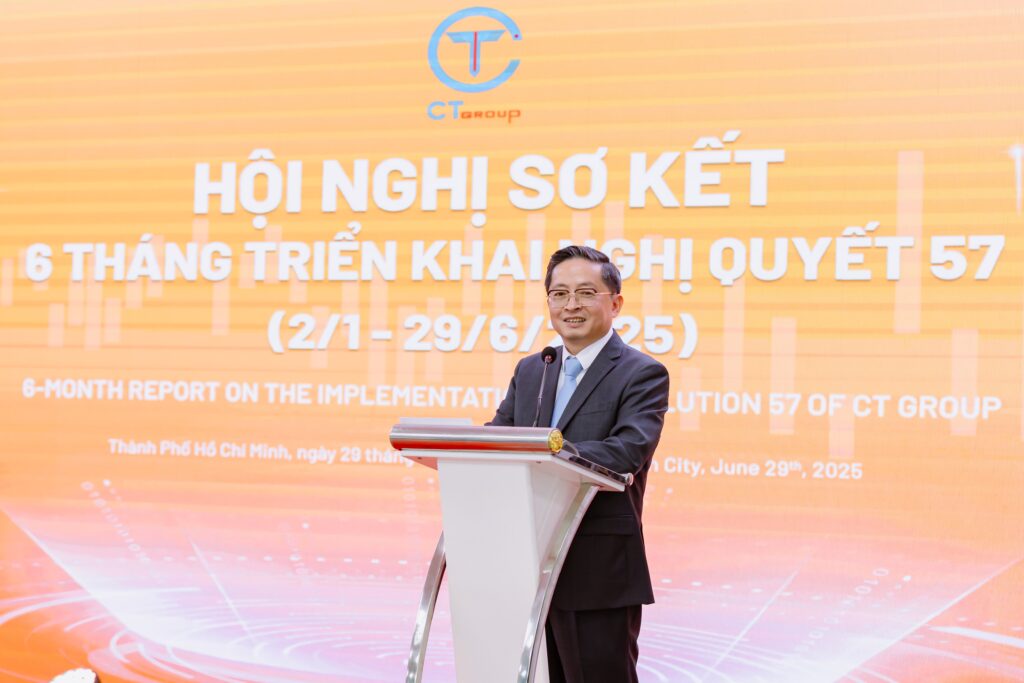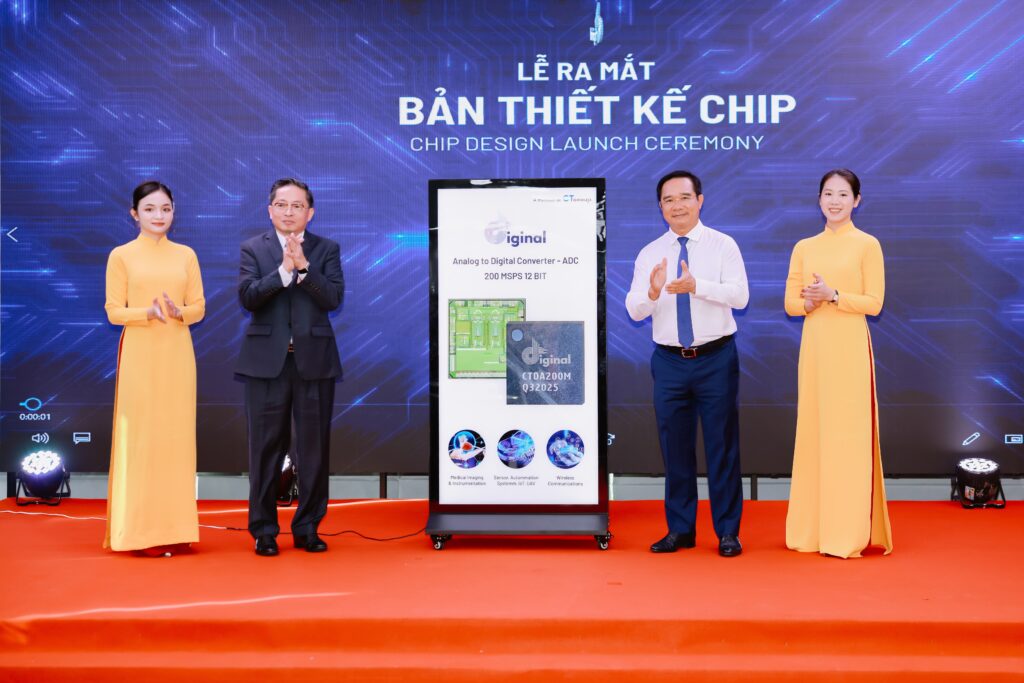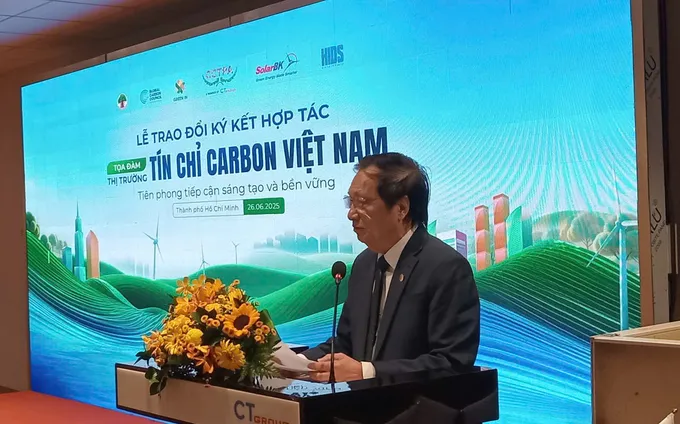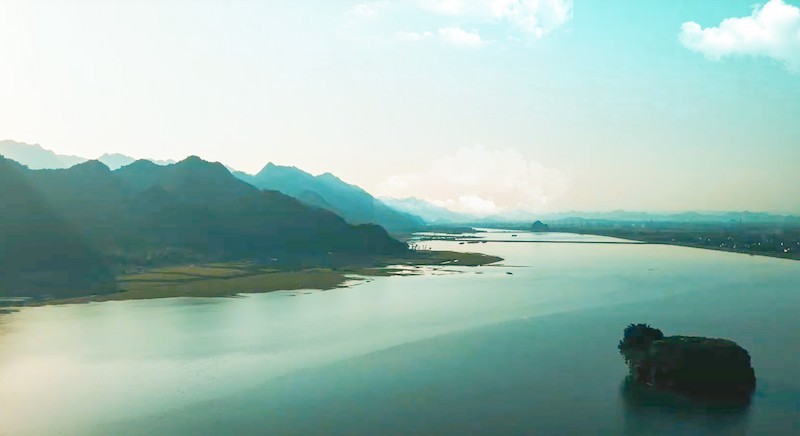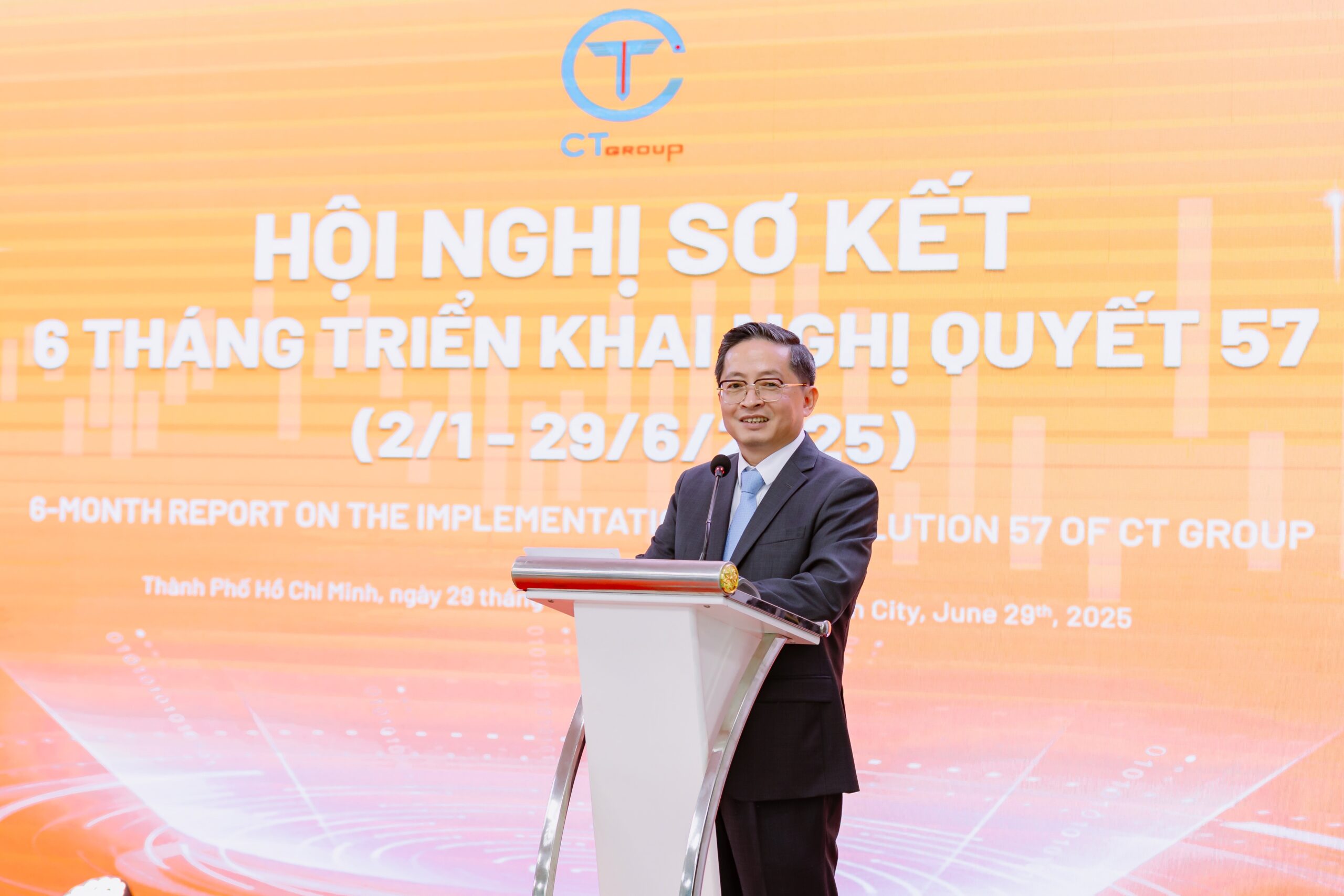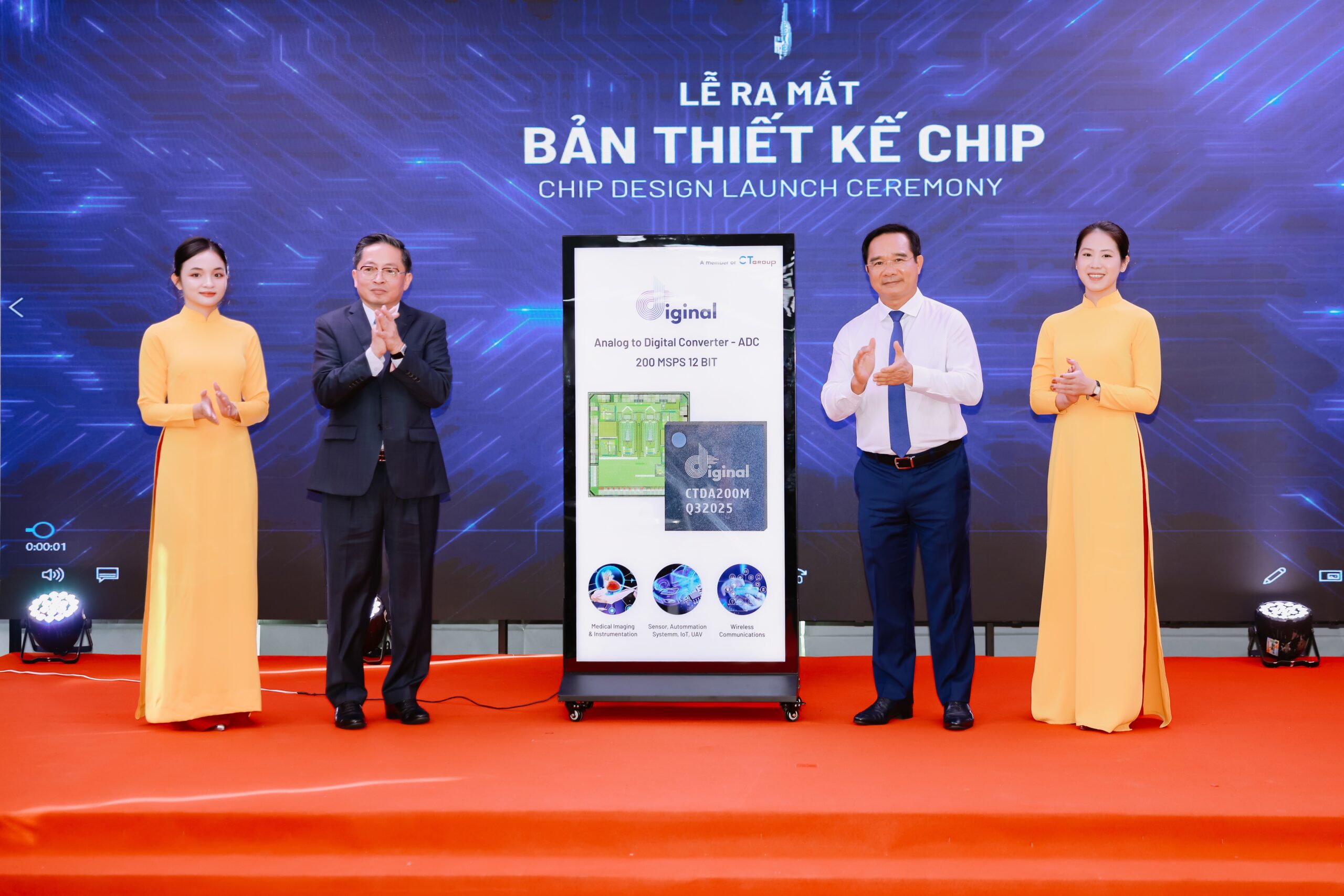CT Group is one of the first units in Vietnam to actively participate in World Oceans Day, as recognized by the United Nations.
On the afternoon of June 8, experts and readers studied and submitted several proposals for seizing worldwide possibilities to build the marine economy in harmony with environmental protection and maritime sovereignty.
When the world is interested in sustainable development strategies in which the ocean plays a particularly important role, countries affected by climate change causing mangroves in coastal areas will receive special attention, and successful marine economic development strategies will be supported globally as a standard model. Not only the countries, but also businesses, must be prepared to deeply identify risks in order to transform them into opportunities, with this as the key to accessing global resources, international policies on interest rate support, preferential capital, and so on… as a major driving force in the development of the country and businesses.
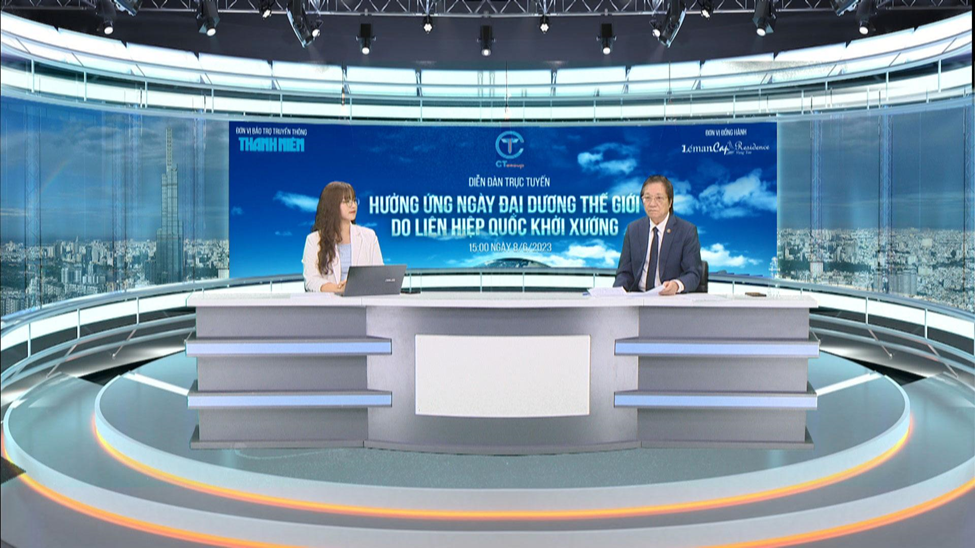
Overview of the online forum in response to World Oceans Day initiated by CT Group
Sharing about the reason for choosing the topic of marine economy at the forum to respond to World Oceans Day, Mr. Vu Hong Quang – Representative of ESG Council of CT Group emphasized when defining Vietnam as a coastal country, with a coastline of more than 3,260 km, plays as an important role in the development of all aspects of the country’s life. Of the 63 provinces and cities of Vietnam, there are 28 provinces and cities with sea and nearly half of the population lives in coastal provinces.
Vietnam’s seas, islands, and oceans provide abundant resources for the development of all economic sectors, ranging from heavy industry such as steelmaking, shipbuilding, oil and gas, minerals, maritime, and so on, to light industries such as logistics, high technology, aquaculture tourism, coastal industry, renewable energy, and so on. At the same time, the sea and islands play a crucial role in the country’s national defense, security, diplomacy, and international cooperation. CT Group attended the United Nations Climate Change Summit in the United Kingdom and supports the government’s pledge to reduce net emissions to zero by 2050. Because of its scientific and technical base, CT Group’s ESG Council is moving quickly to join hands in establishing a sustainable maritime economy.
Dr. Doan Duy Khuong – Former Chairman of the Vietnam Business Council for Sustainable Development – identified a number of methods and strategies for Vietnam’s ocean-oriented development strategy in the 4.0 age while determining the function and relevance of the ocean to the country’s economy. As a result, digital technology must be used efficiently to capitalize on Vietnam’s marine advantages. Dr. Doan Duy Khuong advised that proper sets of standards be developed to efficiently access local and overseas markets while utilizing economic elements while safeguarding national security and defense.
Dr. Doan Duy Khuong proposed five solutions to the problem of maritime economic growth in harmony with the environment. The first is the country’s marine and island development strategy and planning, which may be linked to significant international projects like as the Indo-Pacific Economic Connectivity Initiative, among others. The second step is to improve international collaboration, particularly with ASEAN, on East Sea concerns. The third goal is to use logistics as a springboard into the domains of tourism and economics. The fourth step is to investigate the resource management model to promote resource collaboration between the state and private firms. Finally, using digital technology to foresee climate change and undertake large-scale sea-based initiatives.
According to the Strategy for Sustainable Development of Vietnam’s Marine Economy to 2030, the Government’s vision to 2045 requires a comprehensive strategy that smoothly coordinates many ministries and branches in one unified mechanism and considers corporations capable of planning and implementing high-tech strategies in the marine economy as the focal point for development. The development of coastal resort megacities must be in harmony with the environment, in harmony with real needs, in harmony with many customer service industries to ensure a balance of supply and demand with good forecasts, limiting waste or ecosystem unbalance, and completely banning plastic bags and plastic waste in coastal provinces.
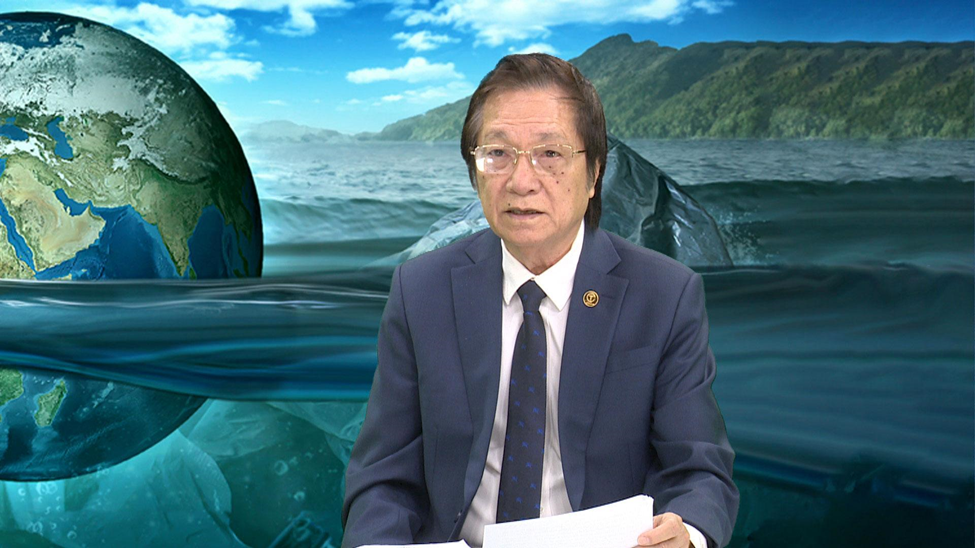
Mr. Vu Hong Quang, Representative of ESG Council of CT Group presented at the online forum
Mr. Vu Hong Quang cites the Léman Cap Residence project, which is in the heart of Vung Tau city, in front of the beach, and behind is a carefully maintained natural forest, using clean energy, prioritizing technological startups, and embracing marine economic development technology as a 3-in-1 model to meet the needs of harmonious development. Dr. Phan Huu Thang, Chairman of the Vietnam Tourism Real Estate Association, emphasized that creating international-class coastal cities requires good preparation in many aspects, including skilled international marketing, an appealing business environment, training human resources, a large amount of investment capital, and effectively mobilizing domestic and international capital in the sorrow context of of tourism real estates now. Good preparations will determine over 70% of success at this particular stage.


